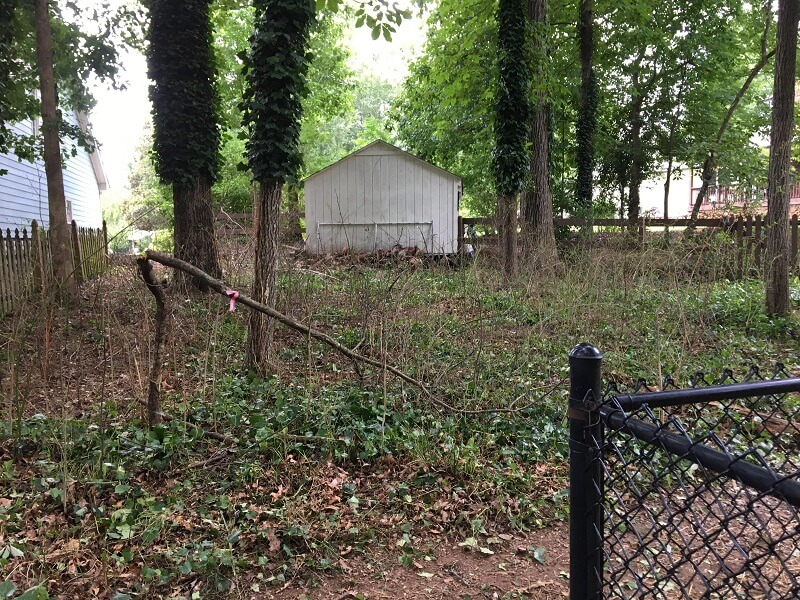The work of a garden cleanup crew has been wowing Reddit users, with striking before-and-after images showing what a fantastic job had been done.
But it wasn't a conventional landscaping company that put in the hard work. Instead, it was a herd of goats.
The first image showed a completely overgrown patch of land, with poison ivy, sumac, and oak covering pretty much every inch of space.

The second, taken after the goats had filled their bellies on a three-day binge, showed a nearly cleared space, with a small shed in the background even becoming visible.
Most impressively, the goats had obviously found some delicious snacks making their way up the trees, with the "after" picture showing the trunks had been stripped a couple of feet up.
"They stand up and reach for everything," the original poster shared. "Then pull stuff down to eat."
The OP detailed that the herd of 12 goats was hired to work on the land at a day rate. "They eat for a couple hours then sleep for a couple hours," they noted. "Rinse and repeat."
Many Redditors were desperate to find a similar service for their gardening needs, offering praise for the effort the goats put in.
"That is amazing!" one user said. "Tip of the hat to the goats."
The images also demonstrate just how much poison ivy can spread if left untreated. While poison ivy is in fact native to North America, it still grows at an alarming rate, is difficult to get rid of, and can choke the life out of other competing plants you actually want to have in your garden. It also secretes a resinous oil that can lead to itchy skin reactions.
The goats didn't seem to mind, though, eating as much as they could across the short stint — and their efforts avoided the need for harmful chemical herbicides, which could poison the earth and restrict future growth.
"Really effective at clearing that out - wow," another Redditor added.
While poison ivy isn't the kind of native plant you'd want for your green space, other varieties can be really beneficial for a garden. Native plants are well suited to local soil and weather conditions, meaning they require little additional watering or maintenance, and they can help to encourage pollinators, which are vital for a healthy food supply.
Join our free newsletter for easy tips to save more, waste less, and help yourself while helping the planet.









